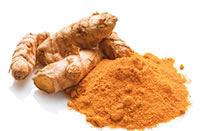Help or Harm?
Nutritional supplements and cancer treatment often don't mix

See our Nutritional supplements Chart for information on which supplements help or hurt.
Research on nutritional supplements and herbal products is far from conclusive, but an estimated 65% to 80%t of cancer patients already use them. With so many possible agents to investigate, conclusive evidence of true benefit is hard to come by.
Because of this, the American Institute for Cancer Research does not recommend the use of supplements to protect against cancer. But if you do take a nutritional supplement or herbal product, the goal is to do no harm: Avoid supplements that may interfere with treatment, cause side effects that could hinder adequate nutrition, or cause significant discomfort or damage to your body.
The following is a list of common nutritional supplements and herbal products used for the treatment of cancer or associated side effects. Use it to start a conversation with your health care team about what is best for you during your treatment.

A general multivitamin with minerals containing no more than 200% to 300% of the Daily Reference Intake may be beneficial, but it is important to know manufacturers of nutritional supplements are not obligated to follow the strict government regulations written for drug manufacturers. This means the content, strength and purity of a supplement may vary among brands and even different batches of the same brand. To ensure the supplement you are taking contains the ingredients listed and does not contain harmful levels of contaminants, look for the U.S. Pharmacopeia, Consumer Lab.com or NSF international seal of approval.
The bottom line is that a healthy, well-balanced diet including lots of plant-based foods-such as whole grains, fruits and vegetables-is most strongly and consistently associated with cancer reduction and lower recurrence rates. The beneficial effects of the vitamins and minerals contained in these foods just can't be matched with an isolated nutritional supplement or herbal product.
Nutritional supplements Chart
Nutritional Supplement |
Claims |
Side Effects |
When Not To Take It |
Is It Safe Otherwise? |
| ESSIAC | Antioxidant, Immune enhancing, Stimulate secretion of GI motility. | Increased stool, flu-like symptoms, slight headaches, swollen glands. | It should be avoided with certain chemotherapy agents and with radiation therapy. Data has shown stimulation of breast cancer cells. There are multiple potential interactions with chemotherapy due to its effects on the liver metabolism of some of these agents. | Not recommended due to lack of evidence to support claims. |
| HYDROGEN PEROXIDE THERAPY (oxygen therapy) | Given orally, intravenously or by colonic irrigation. | Lethal gas embolism, tear in the bowel. | Alone or in conjunction with any other therapy. | Not recommended due to potential harm. |
| CURCUMIN (Turmeric) | Anti-inflammatory, stimulated bile production. | Nausea or diarrhea but generally well tolerated. | It should be avoided during chemotherapy and radiation therapy. Curcumin has some estrogenic properties and should be avoided in breast cancer patients. Curcumin has shown to decrease platelet function, so it should be avoided by those on blood-thinning therapies. | Likely safe. |
| JUICE PLUS | Antioxidant and immune enhancing properties. | GI distress and hive-like rash. | Due to antioxidant properties, it should be avoided with certain chemotherapy agents and with radiation therapy. | Likely safe. |
| ASHWAGANDHA | Anti-inflammatory and immune enhancing effects. | GI upset, diarrhea, vomiting, overactive thyroid. | Take with caution with barbiturates. Due to potential antioxidant properties, it should be avoided with certain chemotherapy agents and with radiation therapy. | Likely safe short-term. |
| NONJ | Antioxidant effects. | Liver toxicity, high blood potassium levels. | Due to antioxidant properties, it should be avoided with certain chemotherapy agents and with radiation therapy. | Likely unsafe. |
| ACAI BERRY | Antioxidant properties. | None reported. | Due to antioxidant properties, it should be avoided with certain chemotherapy agents and with radiation therapy. | Likely safe. |
| FISH OIL/ OMEGA-3 FATTY ACIDS |
Anti-inflammatory, antioxidant and antithrombotic effects. | Halitosis, heartburn, dyspepsia, nausea, loose stools, and rash. | Do not take during antiplatelet, antihypertensive and anticoagulant therapies. Due to antioxidant properties, it should be avoided with certain chemotherapy agents and during radiation therapy. | 3 gm. per day or less is likely safe. |
Learn more about supplements, nutrition and cancer
- Print our Nutritional supplements Chart [pdf]
- Most Wanted Supplements: Are They Cancer Killers or Frauds? What You Need to Know
- Separating Scams from Supplements: Finding your way through the health-food store
